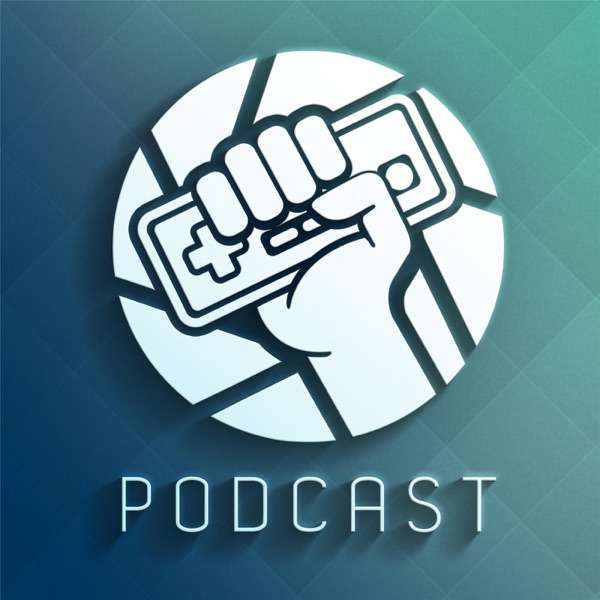SHOW SCHEDULE 1-23-26
1935 BRUSSELS
SEGMENT 1: WEST COAST CITIES IN CRISIS Guest: Jeff Bliss (Pacific Watch) Bliss surveys struggling western cities: Las Vegas grapples with $45 martinis reflecting inflation pressures, Seattle deteriorates worse than Portland, while In-N-Out Burger expands eastward seeking better markets. San Francisco's doom loop deepens as LA gangs now control homeless encampments, marking new lows in urban dysfunction.
SEGMENT 2: NEWSOM'S 2028 PRESIDENTIAL AMBITIONS Guest: Jeff Bliss (Pacific Watch) Bliss examines Governor Gavin Newsom positioning for a 2028 presidential run through public sparring with Trump. Despite national media attention from these confrontations, Newsom faces weak approval ratings within California where residents experience firsthand the failures his administration struggles to address or explain away.
SEGMENT 3: LISA COOK CASE DRAWS FED GIANTS TO SCOTUS Guest: Richard Epstein Epstein analyzes oral arguments in the Lisa Cook case with Federal Reserve Chairman Jerome Powell and former Chair Ben Bernanke attending the Supreme Court proceedings. Discussion examines the legal questions at stake, implications for Federal Reserve independence and appointments, and why this case attracted such extraordinary central banking attention.
SEGMENT 4: GREENLAND TARIFFS LACK LEGAL FOUNDATION Guest: Richard Epstein Epstein argues Trump's tariff threats over Greenland lack constitutional justification, representing neither genuine emergency nor legitimate tool to punish nations disagreeing with American territorial claims. Discussion covers executive overreach on trade policy, legal vulnerabilities of using economic coercion for diplomatic leverage, and likely judicial constraints ahead.
SEG 5 BATCHELOR POD 012326.mp3
MP3
SEG 6 BATCHELOR POD 012326.mp3
MP3
SEG 7 BATCHELOR POD 012326.mp3
MP3
SEGMENT 5: ITALY'S WINTER OLYMPICS FACE SNOW CRISIS Guest: Lorenzo Fiori and Jeff Bliss Fiori and Bliss report on Cyclone Harry striking Italy while the eastern Alps suffer inadequate snowfall threatening upcoming Winter Olympics venues. Discussion covers the paradox of extreme weather alongside poor ski conditions, organizers scrambling to prepare bobsled and alpine courses, and climate uncertainties plaguing winter sports planning.
SEGMENT 6: LANCASTER COUNTY POST-CHRISTMAS CALM Guest: Jim McTagueMcTague reports from Lancaster County, Pennsylvania experiencing typical post-Christmas slowdown as locals anticipate incoming snowfall with excitement rather than dread. Discussion recalls past snow panic in Alexandria, Virginia and contrasts rural Pennsylvania's practical winter preparedness with urban areas' tendency toward weather-driven hysteria and supply hoarding.
SEGMENT 7: BEZOS CHALLENGES MUSK WITH SATELLITE CONSTELLATIONGuest: Bob Zimmerman Zimmerman reports Jeff Bezos's Blue Origin aims to launch a communications satellite constellation rivaling Elon Musk's Starlink dominance. Discussion covers the growing competition among private space ventures, numerous startup companies entering the market, Rocket Lab experiencing launch delays, and the commercial space race intensifying across multiple fronts.
SEGMENT 8: SPACE TUG AND OUTER PLANET PROBE DISCOVERIES Guest: Bob Zimmerman Zimmerman discusses a new space tug designed to deorbit Pentagon satellites addressing orbital debris concerns. Discussion turns to Jupiter and Saturn probes returning surprising scientific results, expanding understanding of the outer solar system, and how commercial and government space programs increasingly collaborate on solving both practical and exploratory challenges.
SEG 9 BATCHELOR POD 012326.mp3
MP3
SEG 10 BATCHELOR POD 012326.mp3
MP3
SEG 11 BATCHELOR POD 012326.mp3
MP3
SEG 12 BATCHELOR POD 012326.mp3
MP3
SEGMENT 9: ORIGINS OF THE CHINA LOBBY Guest: Lee Smith, Author of "The China Matrix" Smith traces the China lobby's origins to a pivotal October 1997 White House dinner with the Clintons where VIPs secured immense personal wealth through Beijing connections. Nancy Pelosi and Daniel Moynihan protested these arrangements, but the pact enriching American elites at China's service was firmly established.
SEGMENT 10: NIXON, KISSINGER, AND MAO'S MURDEROUS REGIME Guest: Lee Smith Smith examines how Nixon and Kissinger flattered and empowered Mao in 1972 despite his murderous record. Tiananmen Square proved the regime's brutality, yet American leaders ushered China into the WTO anyway, prioritizing riches over human rights and enabling Beijing's rise to global economic dominance.
SEGMENT 11: FEINSTEIN AND BLUM'S SHANGHAI CONNECTIONS Guest: Lee Smith Smith details how San Francisco Mayor Diane Feinstein and husband Richard Blum cultivated relationships with Shanghai's mayor and later Tiananmen dictator Deng Xiaoping, becoming apologists for the regime. These connections exemplify how American political figures enriched themselves while providing cover for China's authoritarian government.
SEGMENT 12: TRUMP AIMS TO END THE CHINA LOBBY Guest: Lee Smith Smith argues China operates as marauder, thief, and killer, wrecking world trade and undermining American manufacturing while enriching the China lobby Trump calls "globalists." The Trump administration learned not to trust Xi Jinping after COVID lies shattered any remaining confidence, signaling determination to dismantle this corrupt arrangement.
LL SEPARATE FILES. GUEST, HEADLINE, 50 WORD SUMMARY FOR EACH. NUMBER 13-16....13 MIHL TCHAOTH OF CIVITAS INSTITUTE ATTENDING SCOTUS ORAL ARGUMENT OF AN ENERGY VS ENVIRONMENT DISPUTE DATING TO CLAIM BY LOIUISIANA THAT THE OIL AND GAS EXTRACTION DURING SECOND WORLD WAR DANAGED COASTLIBEAND QUALITY OF LIFE. DEFENDING OIL GAS IS PAUL CLEMENT, FORMER SOLICITIR GENERAL ARGUES THAT DURING WSRTIME NO LIMITS, EXISTENITSIL
8:19 PM
I only received information for segment 13. Could you provide the guest and topic details for segments 14, 15, and 16 so I can complete all four summaries?
SEGMENT 13: SCOTUS HEARS WARTIME OIL EXTRACTION LIABILITY CASE Guest: Michael Toth (Civitas Institute) Toth reports from Supreme Court oral arguments on Louisiana's claim that World War II oil and gas extraction damaged coastlines and quality of life. Former Solicitor General Paul Clement defends energy companies, arguing wartime production faced no limits given the existential threat requiring maximum resource extraction for national survival.
14 MICHAEL TOTH DNDR PF SCOTUS SYMPSATHIRC TO OIL GAS COM[ANIES THAT THEYWERE SUPPLYING HOMEFRONT CASE BELONGS IN FEDERAL COURT, NOT PUNITIVE STATE COURT.
8:21 PM
SEGMENT 13: SCOTUS HEARS WARTIME OIL EXTRACTION LIABILITY CASE Guest: Michael Toth (Civitas Institute) Toth reports from Supreme Court oral arguments on Louisiana's claim that World War II oil and gas extraction damaged coastlines and quality of life. Former Solicitor General Paul Clement defends energy companies, arguing wartime production faced no limits given the existential threat requiring maximum resource extraction for national survival.
SEGMENT 14: SCOTUS SYMPATHETIC TO OIL AND GAS DEFENSE Guest: Michael Toth (Civitas Institute) Toth reports the Supreme Court appears sympathetic to oil and gas companies arguing they supplied the homefront during wartime under government direction. Justices signal the case belongs in federal court rather than punitive state courts where energy companies face hostile juries and politically motivated litigation against essential wartime production.
Please provide guest and topic details for segments 15 and 16 to complete the schedule.
- CLIFF MaY OF FDD ARGUES THST POTUS IS CHASING out the dictators of caracas, havana and tehran cuba regime change i
8:34 PM
SEGMENT 15: TRUMP TARGETS DICTATORS IN CARACAS, HAVANA, AND TEHRANGuest: Cliff May (FDD) May argues Trump is aggressively pursuing regime change against the dictatorships in Venezuela, Cuba, and Iran. Discussion examines the administration's maximum pressure campaigns, weakened positions of Maduro, Díaz-Canel, and Iranian leadership, and whether coordinated American pressure can finally topple these longstanding authoritarian regimes in the hemisphere and beyond.
Please provide guest and topic details for segment 16 to complete the schedule.
16 q6 ucstion ccenter reports on fresh ai generated data that finds geothermal success overlooked by us testing. s prioe=ritytrmp admin to a tals fest. action.. 16 henry sokolski of non proliferstion rpolcy ed
8:35 PM
SEGMENT 16: NON-NUCLEAR ICBM TO DESTROY UNDERGROUND BUNKERSGuest: Henry Sokolski (Nonproliferation Policy Education Center) Sokolski discusses development of a massive conventional ICBM designed to penetrate hardened underground bunkers without nuclear warheads. Discussion examines strategic rationale for this kinetic weapon against buried Iranian or North Korean facilities, technical challenges of achieving sufficient destructive force, and arms control implications of such capabilities.
Please clarify: You mentioned both a geothermal/AI story and Henry Sokolski for segment 16. Should these be two separate segments, or did segment 15 include geothermal content? Let me know and I can adjust accordingly.
SEGMENT 9: ORIGINS OF THE CHINA LOBBY Guest: Lee Smith, Author of "The China Matrix" Smith traces the China lobby's origins to a pivotal October 1997 White House dinner with the Clintons where VIPs secured immense personal wealth through Beijing connections. Nancy Pelosi and Daniel Moynihan protested these arrangements, but the pact enriching American elites at China's service was firmly established.
SEGMENT 10: NIXON, KISSINGER, AND MAO'S MURDEROUS REGIME Guest: Lee Smith Smith examines how Nixon and Kissinger flattered and empowered Mao in 1972 despite his murderous record. Tiananmen Square proved the regime's brutality, yet American leaders ushered China into the WTO anyway, prioritizing riches over human rights and enabling Beijing's rise to global economic dominance.
SEGMENT 11: FEINSTEIN AND BLUM'S SHANGHAI CONNECTIONS Guest: Lee Smith Smith details how San Francisco Mayor Diane Feinstein and husband Richard Blum cultivated relationships with Shanghai's mayor and later Tiananmen dictator Deng Xiaoping, becoming apologists for the regime. These connections exemplify how American political figures enriched themselves while providing cover for China's authoritarian government.
SEGMENT 12: TRUMP AIMS TO END THE CHINA LOBBY Guest: Lee Smith Smith argues China operates as marauder, thief, and killer, wrecking world trade and undermining American manufacturing while enriching the China lobby Trump calls "globalists." The Trump administration learned not to trust Xi Jinping after COVID lies shattered any remaining confidence, signaling determination to dismantle this corrupt arrangement.
SEGMENT 13: SCOTUS HEARS WARTIME OIL EXTRACTION LIABILITY CASE Guest: Michael Toth (Civitas Institute) Toth reports from Supreme Court oral arguments on Louisiana's claim that World War II oil and gas extraction damaged coastlines and quality of life. Former Solicitor General Paul Clement defends energy companies, arguing wartime production faced no limits given the existential threat requiring maximum resource extraction for national survival.
SEGMENT 14: SCOTUS SYMPATHETIC TO OIL AND GAS DEFENSE Guest: Michael Toth (Civitas Institute) Toth reports the Supreme Court appears sympathetic to oil and gas companies arguing they supplied the homefront during wartime under government direction. Justices signal the case belongs in federal court rather than punitive state courts where energy companies face hostile juries and politically motivated litigation against essential wartime production.
SEGMENT 15: TRUMP TARGETS DICTATORS IN CARACAS, HAVANA, AND TEHRANGuest: Cliff May (FDD) May argues Trump is aggressively pursuing regime change against the dictatorships in Venezuela, Cuba, and Iran. Discussion examines the administration's maximum pressure campaigns, weakened positions of Maduro, Díaz-Canel, and Iranian leadership, and whether coordinated American pressure can finally topple these longstanding authoritarian regimes in the hemisphere and beyond.
SEGMENT 16: NON-NUCLEAR ICBM TO DESTROY UNDERGROUND BUNKERSGuest: Henry Sokolski (Nonproliferation Policy Education Center) Sokolski discusses development of a massive conventional ICBM designed to penetrate hardened underground bunkers without nuclear warheads. Discussion examines strategic rationale for this kinetic weapon against buried Iranian or North Korean facilities, technical challenges of achieving sufficient destructive force, and arms control implications of such capabilities.

 Our TOPPODCAST Picks
Our TOPPODCAST Picks  Stay Connected
Stay Connected







